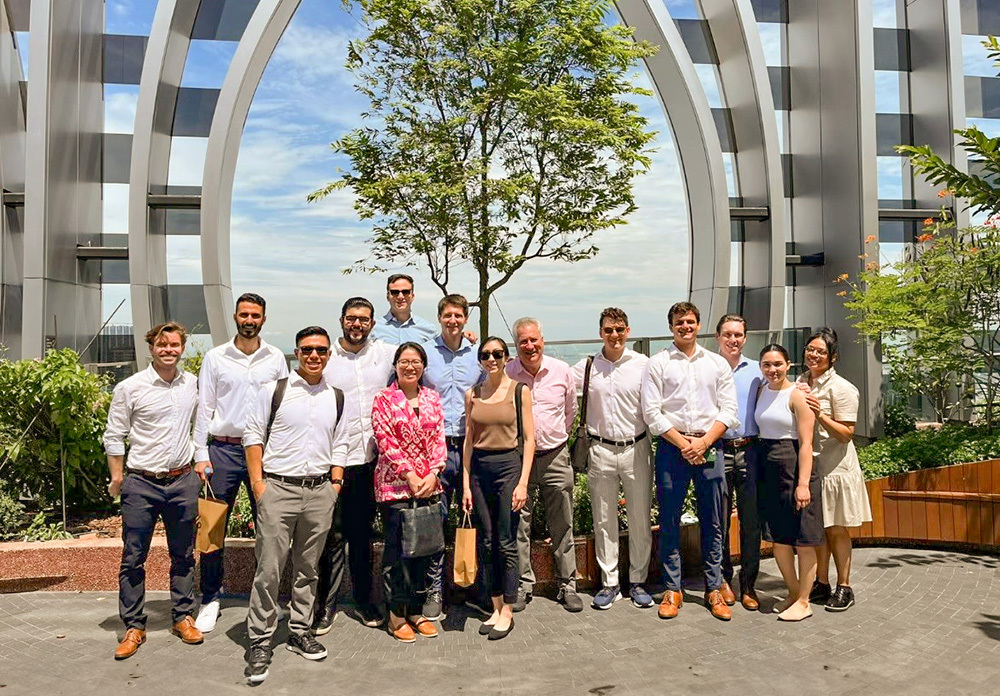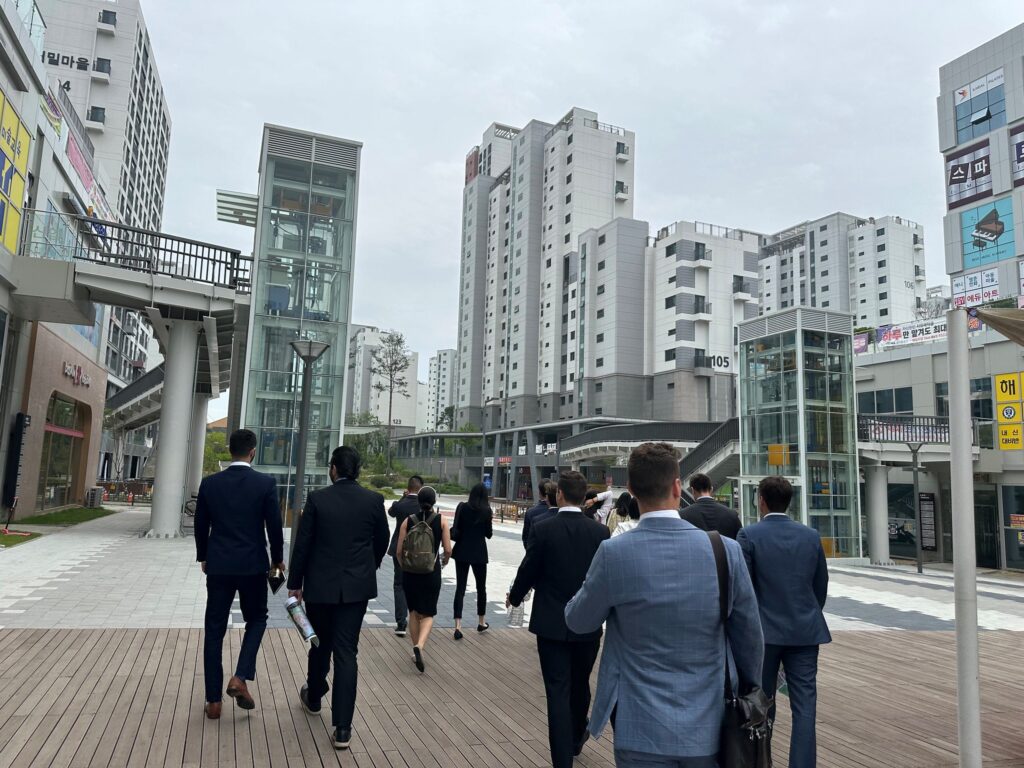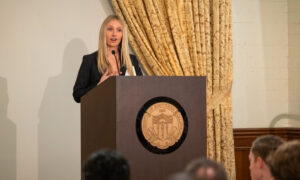
By Greg Hardesty
From Israel to South Korea to Austria, USC Price School students, faculty and staff are traveling abroad to learn how real estate and business differ around the world.
Participants on overseas educational and fellowship trips, ranging from a week to two months, say the experience provides them valuable knowledge beyond what textbooks or lectures can deliver.
“I think it’s perspective-broadening,” says Professor Richard Green, chair of the Wilbur H. Smith III Department of Real Estate Development at the USC Price School and director of the USC Lusk Center for Real Estate. “They see how people do things in other countries that are different from how we do things in the U.S.”
“Some of these practices we might consider doing here, but others we realize won’t work very well,” he says.
Swing through Asia
For two weeks in mid-May, Green led 12 students in his Real Estate Development course (RED 585) on tours of Singapore and Seoul.

The visit to South Korea was especially educational, Green said, as the group experienced cities in contrast: Seoul, the vibrant capital, and Sejong City, the country’s de facto administrative capital.
“Seoul is the lively, enticing, and huge city that it is because it organically provides a deep labor market and cultural vitality that attracts people from all over the country,” Green explains. “Sejong City is a planned city whose urban form makes no sense. It’s a circle surrounding a large empty space whose residents are forced to live there because of their civil service jobs.”
Green said the lesson is that “market cities are better than planned cities because they imperfectly reflect the preferences of thousands or even millions of people, instead of perfectly reflecting the preferences of a few dozen planners.”
Walkability, sustainability and green space
Tiana Quinones, a former associate at Moore Real Estate Group, graduated from USC Price School’s MRED program this May. She was part of the delegation that went to Singapore and South Korea.
“Professor Green’s International Real Estate course was enlightening,” Quinones says. “From the presentations to the tours, I was challenged to think outside my California-centric perspective. I learned from two of the quickest-growing economies how they feel about real estate, their techniques or strategies, and their future.”
Quinones says what was most striking about Seoul was the walkability; in Singapore, it was the country’s sustainability initiatives. “I can now utilize these tools to improve real estate as we know it in the United States,” she says.
Joshua Gonzalez, also part of the Asia delegation, graduated with a Dollinger Master of Real Estate Development (MRED) this past spring. He oversees store concept development for the Gonzalez family-run Northgate Markets, which has 43 stores in L.A., Orange, San Diego, and Riverside counties and is developing a new concept in Costa Mesa.
Gonzalez says the visit to Singapore and South Korea helped him think differently about design.
“With these newfound insights, our store and shopping center layouts and designs will change to reflect green-space inspirations and layouts that were observed in Asia,” he says.
“The trip and my experience in the MRED program were phenomenal,” Gonzalez adds. “I always loved the way that people who went to USC gave back once they left. Besides the high quality of education, it’s the quality of this USC network that amazes me.”
A real estate student studies in Tel Aviv
Michael Newman, an undergraduate RED student with a minor in business law, is spending eight weeks in Israel this summer on a prestigious TAMID Group Summer Fellowship.
Newman is living and working in Tel Aviv courtesy of TAMID, the highly competitive university club that works directly with Israeli startups and firms. Newman will be interning at the Israeli office of RM Group, a real estate development and investment firm, and will be involved in asset management and acquisitions.
A former president of Beverly Hills High School’s Real Estate Club, Newman was drawn to USC’s RED program, “because of the especially small class sizes and exceptional real estate network,” he says.
“I look forward to bringing all the skills I learn from this summer in business and applying them to my future career in Los Angeles,” Newman adds. “USC has provided me with stellar academic classes and outstanding advisors. There are so many resources that I’m incredibly grateful for.”
Affordable housing in Austria
Saba Mwine, managing director of the Homelessness Policy Research Institute at the USC Price School, was introduced to a like-minded Trojan during a recent trip to Vienna to learn about the city’s social housing model.

Mwine met David Levitus, who earned his Ph.D. in history from USC and is founder and director of the nonprofit L.A. Forward, on the weeklong June visit organized by the Global Policy Leadership Academy.
They toured affordable housing owned by nonprofits, cooperatives or the government, where the majority of Vienna’s 2 million residents live. The units are available to people across the income spectrum, and rent is as low as a few hundred dollars per month for studio and one-bedroom apartments.
It’s quite a contrast with the sky-rents in L.A. One USC Price School study found nearly half of L.A. renters surveyed were severely rent-burdened, spending over 50% of household income on rent and utilities.
“One of the things that really struck me is they really have a culture of care for their community and city that we in Los Angeles have not been able to realize around housing,” says Mwine, who has worked for more than 20 years on equitable solutions to homelessness.
Levitus’ organization, which focuses on policies that provide access to “good housing, transportation, jobs, schools, and green space” across Los Angeles, has been involved in measures that would increase funding for social housing. “Vienna shows that the system can work,” Levitus says. “It’s viable economically and it’s beautiful housing.”
Mwine and Levitus are organizing an event to discuss what they learned in Vienna – just one of many ways USC Price School faculty, students and staff will use what they learn abroad to improve understanding of public policy solutions in our increasingly connected world.



